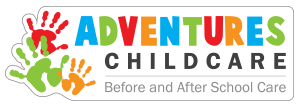Child-led learning, an approach where education is guided by the child’s interests, pace, and curiosity, is transforming early childhood education. This methodology not only respects each child’s natural learning style but also promotes a range of developmental benefits from cognitive gains to emotional and social growth. Here, we explore why child-led learning is so effective in early development stages and how it can shape a child’s educational journey.
The Philosophy of Child-Led Learning
Child-led learning stems from the belief that children are naturally curious and capable of driving their own learning experiences. This approach is deeply rooted in the theories of educators like Maria Montessori and Loris Malaguzzi, founder of the Reggio Emilia approach, who argue that children learn best when they engage with concepts that interest them in an environment that encourages exploration.
Cognitive Benefits
Child-led learning has a profound impact on cognitive development. By allowing children to engage with topics they find interesting, they are more likely to delve deeper, ask questions, and retain information. This approach turns learning into a more meaningful and enjoyable process, encouraging lifelong learning habits.
- Enhanced Problem-Solving Skills: When children choose their activities, they also learn to navigate challenges and obstacles related to their interests. This autonomy in decision-making and problem-solving is crucial for developing independent thinking and adaptability.
- Boosted Creativity and Innovation: By exploring their interests, children develop unique ways of thinking and solving problems. This freedom encourages creative thinking as they are not restricted to conventional methods or outcomes.
- Improved Academic Performance: Research indicates that when children are interested in their learning activities, they show improved attention and better overall academic performance. A study from the University of Colorado shows that interest-driven learning significantly enhances comprehension and recall in young children.
Social and Emotional Development
Child-led learning also significantly impacts social and emotional development. It fosters a positive self-concept and resilience by emphasizing the child’s ability to lead and make decisions.
- Social Skills: In a child-led setting, children interact with peers around shared interests, which naturally fosters cooperation and communication skills. These interactions are crucial for developing the social competencies needed throughout life.
- Emotional Intelligence: As children navigate their learning, they also learn to manage frustrations and excitement, which are common in exploration. Handling these emotions constructively contributes to emotional maturity.
- Sense of Autonomy and Confidence: By having the power to make choices about their learning, children develop a strong sense of autonomy and self-confidence. They learn to trust their capabilities and judgments, which is fundamental for personal growth and self-esteem.
Physical Development
Child-led learning often involves activities that require physical engagement, whether it’s building structures, creating art, or exploring the outdoors. These activities help develop fine and gross motor skills while also promoting general health.
- Motor Skills Development: Activities chosen by children often involve tasks that require coordination and manipulation, such as drawing, cutting, or assembling, which are excellent for motor development.
- Active Lifestyle Promotion: Children naturally incorporate physical activities into their play, which promotes health and well-being, essential in combating modern issues like childhood obesity.
Long-Term Educational Outcomes
Implementing child-led learning in early development stages sets a foundation for future educational success. Children nurtured in environments that respect their learning choices are more likely to become motivated, lifelong learners.
- Lifelong Learning: When learning is associated with positive emotions and self-directed discovery, children develop a love for learning that often persists throughout their lives.
- Adaptability to Future Educational Settings: Children accustomed to directing their learning can adapt more effectively to different educational settings and challenges. They tend to be more proactive about their education and less reliant on external motivations.
Conclusion
Child-led learning is not merely an educational choice but a holistic approach that nurtures a well-rounded individual. By allowing children to lead their learning journeys, we empower them to not only acquire knowledge but also to develop essential skills and attitudes that will serve them throughout their lives.
As we move towards more child-centered educational practices, the benefits of such an approach become increasingly apparent, promising a future where education is not just something that happens to children but something that they actively shape, creating a lifelong impact.
.


